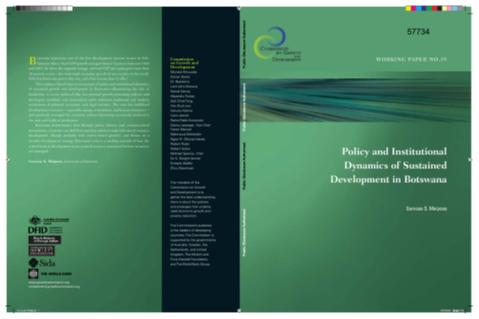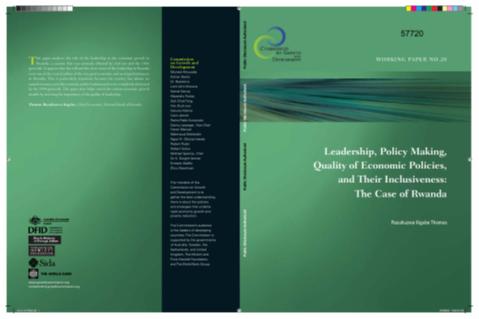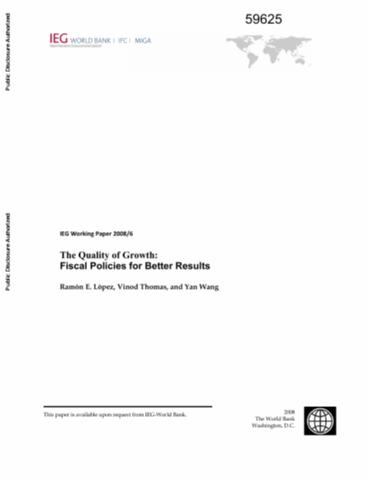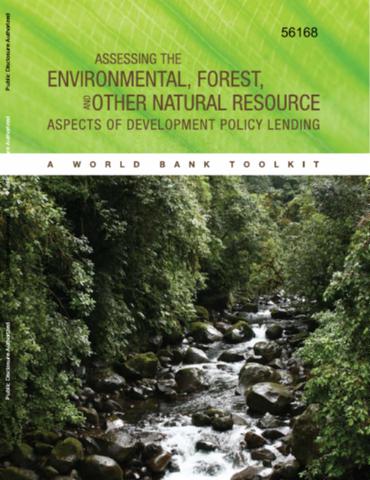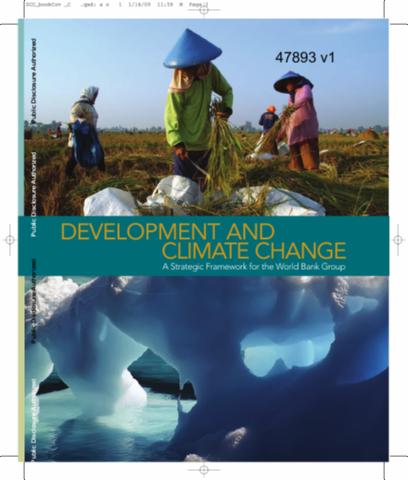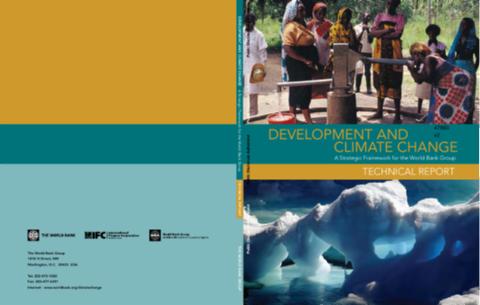Categorising farming practices to design sustainable land-use management in mountain areas
In European mountain areas, shrub encroachment resulting from farmland abandonment is most often managed by mechanical operations such as roller chopping or controlled burning, which have proved to be ineffective and unsustainable. Recent agroecological findings highlight the potential impact of grazing on long-term shrub dynamics.
Policy and Institutional Dynamics of Sustained Development in Botswana
Botswana represents one of the few development success stories in Sub-Saharan Africa. Real Gross Domestic Product (GDP) growth averaged almost 9 percent between 1960 and 2005, far above the Sub-Saharan Africa average. Real GDP per capita grew even faster, averaging more than 10 percent a year -- the most rapid economic growth of any country in the world.
Leadership, Policy Making, Quality of Economic Policies, and Their Inclusiveness
This paper analyzes the role of the leadership in the economic growth in Rwanda, a country that was seriously affected by civil war and the 1994 genocide. It appears that the will and the clear vision of the leadership in Rwanda were one of the central pillars of the very good economic and social performances in Rwanda.
The Quality of Growth
The world faces unprecedented opportunities to reduce global poverty and improve human welfare. Strong global growth and better economic policies in recent years have substantially reduced poverty in many developing countries.
Assessing the Environmental, Forest, and Other Natural Resource Aspects of Development Policy Lending
The operations policy on Development Policy Lending (DPL), approved by the Board in August 2004, requires that the Bank systematically analyze whether specific country policies supported by an operation are likely to have "significant effects" on the country's environment, forests, and other natural resources.
Development and Climate Change
This strategic framework serves to guide and support the operational response of the World Bank Group (WBG) to new development challenges posed by global climate change. Unabated, climate change threatens to reverse hard-earned development gains. The poorest countries and communities will suffer the earliest and the most. Yet they depend on actions by other nations, developed and developing.
Development and Climate Change
This strategic framework serves to guide and support the operational response of the World Bank Group (WBG) to new development challenges posed by global climate change. Unabated, climate change threatens to reverse hard-earned development gains. The poorest countries and communities will suffer the earliest and the most. Yet they depend on actions by other nations, developed and developing.
Uso da água nas terras secas da Iberoamérica: indicadores de eficiência hidro-ambiental e sócio-econômica
p. 60-71
L'agriculture périurbaine à Sétif (Algérie) : quel avenir face à la croissance urbaine ?
Suburban agriculture in Setif (Algeria): which future in face of urban growth? The suburban agriculture in Setif which is mainly based on the specialized agricultural activities (cereals, animal production) has an important role. Its economic and social values are regarded in terms of the hugeness of its areas, the number of its manpower and the quality of its production.
Agricultural Land Management for Sustainable Development in Rural Kenya
Land is one of the most important naturaE resources for the creation of wealth in many societies. Its ownership and control brings economic power, which in turn, is often the basis for social and polifical power Unlike other factors of production such as labour and capilal, land is in fixed supply.
Geo MERCOSUR
Comercio e Integración Regional Influyen en la dimensión Ambiental. Recursos naturales bordean el 60% del total de exportación de la subregión. Documento revelador sobre el mercado de la soya y otros. Documento completo se puede bajar de http://www.pnuma.org/raiz/GeoMercosurFinal.pdf Aquí le ofrecemos un summary de prensa.


